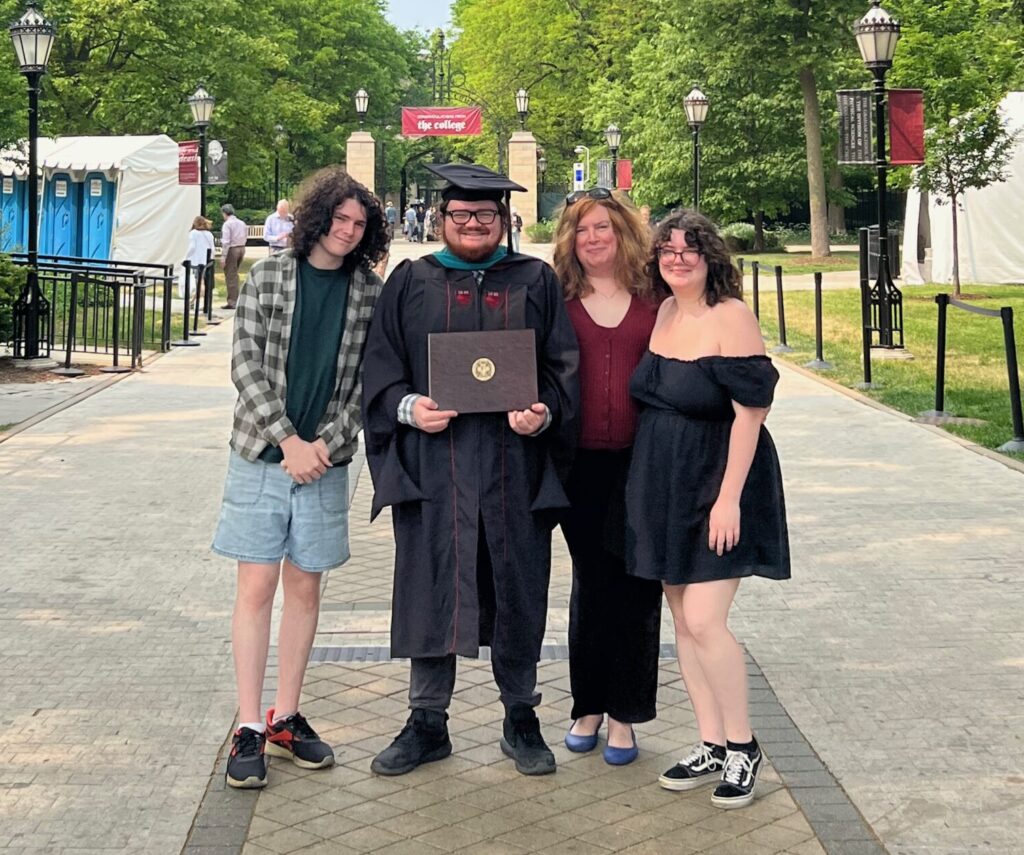By Dawn Ennis
I was four years old when I came out to my mother as transgender, even though that wasn’t the word I used, or anyone used, way back in 1968. What I said was, “I’m a girl.”
“No, no,” said my mother, with a broad smile. “You’re not a girl,” she told me. “You’re special!” This was in the weeks after she gave birth to my sister. I told her how much I looked forward to becoming a mommy myself someday. Just like her.
I’m confident that she didn’t really intend to traumatize me, but her blunt response did exactly that. Here is what she said: “Oh, honey, you can’t have a baby!”
I was crushed! It would be years before I realized what she meant; I thought the reason I couldn’t become a mom was because something was wrong with my body. In retrospect, I guess it could be said something was indeed wrong, since my body did not align with my gender identity. I knew I was a girl, even if everyone thought I was a boy. A “special” boy.
The boys in school didn’t call me special. They called me that other “F word,” among other things that bullies say, usually in combination with a punch. Many people who’ve come out as adults have told me they’ve known the truth since they were children, often at four or five years old.
Three years later, I learned from my mother that she had chosen the name “Dawn” for me before I was born, because she was convinced that she was carrying a girl.
It would be decades before I finally, legally, changed my name and came out to the world. And in between, I did what every closeted person does: I hid who I really am, believing it would be best to follow the script written by my parents. I was a child actor who exceled in my performance of the role of “boy;” I would go on to win the part of “man” and “husband,” and ultimately, my favorite role: “father.”
All these years later, I am the woman I always knew I should be but never believed I could be. I am also a widow, because of the scourge of cancer. While I usually don’t refer to myself as a mother, I now accept the title, having done “the job of mom” for close to a decade. I have raised three children all by myself for close to a decade. And I’ve been told I did it well. I inherited this position, which I call the hardest job I’ve ever loved.
“As a mother…” I once said to an anti-inclusion activist from the U.K. A viral video of that 2022 encounter shows her confronting me about using a women’s public restroom at a sports facility where I was credentialed to cover a championship meet. Thousands of times, her followers and those who read the right-wing rag The National Review have watched us tangle; They especially enjoyed the reaction of outraged TERFs (trans-exclusionary radical feminists) surrounding me, like the bullies in grade school, shouting at me, “How dare you!”
But it’s not just the word “mom” that causes pushback. Our three kids still get odd looks when they call me, “Dad.” When I came out in 2013, we agreed that the name they had always called me was the best fit, even if strangers and in-laws didn’t approve. So, I’ve often been asked why I, a woman, refer to myself as a “dad.”
My answer is, “I’m both a woman and a dad because… women can be anything.”
But so much of the world today disdains differences. They gawk at tall women, short men and other people whose bodies are a size that is bigger or smaller than theirs. They reject nonbinary individuals and those with different abilities, autism or mental health struggles. They call themselves “normal” to distance themselves from those of us who have reclaimed the word “queer.”
Being a writer, I’ve managed to harness my skill with words to my advantage in difficult situations. Such as, when people mispronounce my last name, I’ve taken to telling them, “My name rhymes with ‘tennis’ not with ‘penis.’”
But even I am at a loss to come up with words that will change closed minds. People across America, even here in Connecticut, see women like me as men. They cannot be swayed. They refuse to accept, to even consider my humanity. I wish they would recognize that no two women are alike; I don’t claim to be the same as a cisgender woman.
I am different. But I say, being different is perhaps the most American thing anyone can be.









More Stories
Poll Dancing: Just How LGBTQ+ Friendly is Connecticut?
Dancing in Hard Times
Breaking Access Barriers: Connecticut’s Bold New Step Toward Mental Health Parity